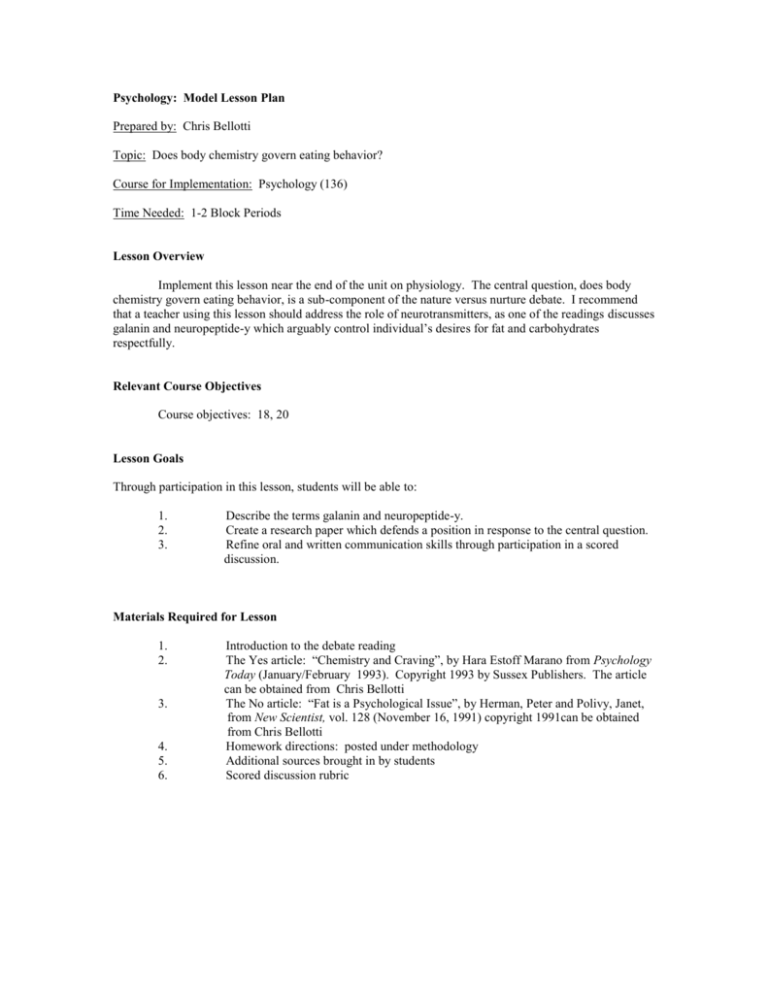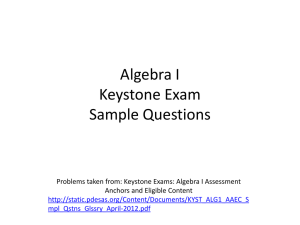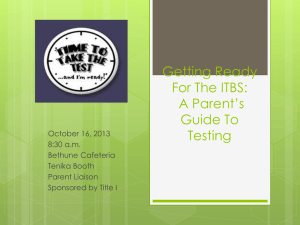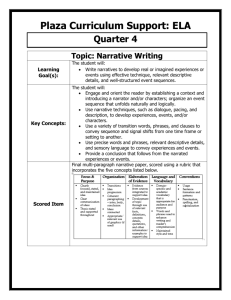Psychology: Model Lesson Plan
advertisement

Psychology: Model Lesson Plan Prepared by: Chris Bellotti Topic: Does body chemistry govern eating behavior? Course for Implementation: Psychology (136) Time Needed: 1-2 Block Periods Lesson Overview Implement this lesson near the end of the unit on physiology. The central question, does body chemistry govern eating behavior, is a sub-component of the nature versus nurture debate. I recommend that a teacher using this lesson should address the role of neurotransmitters, as one of the readings discusses galanin and neuropeptide-y which arguably control individual’s desires for fat and carbohydrates respectfully. Relevant Course Objectives Course objectives: 18, 20 Lesson Goals Through participation in this lesson, students will be able to: 1. 2. 3. Describe the terms galanin and neuropeptide-y. Create a research paper which defends a position in response to the central question. Refine oral and written communication skills through participation in a scored discussion. Materials Required for Lesson 1. 2. 3. 4. 5. 6. Introduction to the debate reading The Yes article: “Chemistry and Craving”, by Hara Estoff Marano from Psychology Today (January/February 1993). Copyright 1993 by Sussex Publishers. The article can be obtained from Chris Bellotti The No article: “Fat is a Psychological Issue”, by Herman, Peter and Polivy, Janet, from New Scientist, vol. 128 (November 16, 1991) copyright 1991can be obtained from Chris Bellotti Homework directions: posted under methodology Additional sources brought in by students Scored discussion rubric Methodology Preparation for Scored Discussion: 1. About one week before scored discussion is planned, distribute the research paper directions. Research Paper Directions: Respond to the following question: Does body chemistry govern eating behavior? Answer the question in a minimum of typed pages. Use the two sources given to you, plus one additional source. Requirements and Point Values: Reference to sources: (minimum of four) 20 Points Works Cited: 20 Points Scoring of Written Component: 60 Points Block 1 1. 2. 3. 4. 5. 6. 7. A. B. C. D. Teacher should prearrange desks in a circle or square so all students will be able to see each other. Handout rubric for scored discussion and discuss it with students. The teacher should begin the scored discussion by introducing the central question and briefly highlighting the key points on each side of the argument. The teacher should begin to ask for volunteers to begin the discussion. As the discussion ensues, the teacher should be clarifying students’ points, as well as, asking probing questions when necessary. 25-30 minutes into the discussions, the teacher should ask for volunteers to summarize the main yes and no arguments. After another 10-15 minutes pass, the teacher should begin to ask the following challenge questions: Is dieting dangerous? From what evidence do you draw your conclusions? If you were experiencing a weight problem, from whom would you seek help: a medical doctor or a psychologist? Why? How do you think eating disorders should be treated? Why would such a treatment be effective? Herman and Polivy state that dieters “counter-regulate.” What implications does this have for the treatment of chronic dieters? Evaluation of Student Progress 1. Oral participation during scored discussion Sample Rubric: Volume 1 2 3 4 5 6 7 8 9 10 3 4 5 6 7 8 9 10 3 4 5 6 7 8 9 10 3 4 5 6 7 8 9 10 4 5 6 7 8 9 10 Appropriate Comments 1 2 Posing Questions 1 2 Eye Contact 1 2 Proper Use of Sources 1 2 3 2. Completion of research paper Extension Activities 1. Students can also examine the question: Does body chemistry control drug addiction? 2. Guest speakers can be asked to come in to address the issue. I would recommend a psychologist who is an expert in eating behavior, a physician, and someone who has suffered from eating disorders.




